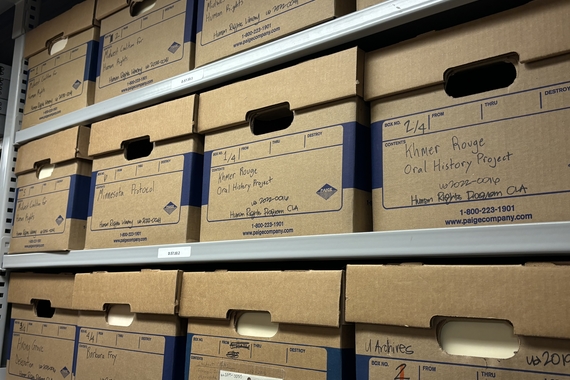Alum Studies Academic Partnerships between Global South & North
Ian Allen is a University of Minnesota Alumni who minored in Human Rights. He also worked at the Human Rights Program. Currently Ian is pursuing a PhD in Comparative and International Development Education and working at the College of Veterinary Medicine on a project called the One Health Workforce (OHW). In this interview, Ian tells us about his PhD track, and discusses how his studies in human rights applies to his current work.
HRP: Where are you currently studying and what projects are you working on?
Ian: I'm currently a second year PhD student in the College of Education and Human Development at the University of Minnesota. My field is Comparative and International Development Education, which is concerned with the comparative study of educational theories and practices in various countries. My research in particular is focused on development and research partnerships between institutions in the Global North and South and the questions of ethics, knowledge sharing, and sustainability that surround these partnerships.
I also work in the College of Veterinary Medicine on a project called the One Health Workforce (OHW). OHW receives funding from the US Agency for International Development Assistance and if focused on training health workforces around the world so they are better prepared to prevent, detect, and respond to infectious disease threats. My work on the project is in the area of monitoring and evaluation; I track progress towards project performance indicators and evaluate activities to make sure they are meeting our goals, and if not, looking for ways to improve them. Working full time and being a full time student definitely has its challenges, but luckily I find that my work and research overlap quite a bit.
HRP: How do you see your academic experiences playing out in your life today? What were some motivations for pursuing this field of study?
Ian: Part of my decision to return to school was to apply a critical lens–or at least take a more analytical look at some of my work experiences related to higher education development. Today, universities are playing a large role in international development projects, both as recipients of international assistance and then also as implementers of projects. A lot of this money flows through the creation of university "partnerships," and while these are becoming the preferred way of supporting higher education amongst donors, there hasn't been a ton of research on the ethics, knowledge sharing, and sustainability surrounding these partnerships. I knew that the Comparative and International Development Education (CIDE) program in the College of Education would be the perfect fit for my doctoral research interests as many of the faculty's research interests span issues related to international development.
HRP: What have been some of the biggest learning moments for you in your academics and your work?
Ian: In terms of academics and work, a huge learning moment or experience was working with the Human Rights Program during my MA degree. While I was working on a specific project at the time, working in HRP involved meeting people from all over the university working and doing research on human rights. Learning about the various ways human rights are studied, and the gaps in scholarship, really shifted what eventually became my final Masters paper. In my paper I focused on how development practitioners and human rights professionals develop and monitor indicators related to education–while their end goals and methods are different, there is also a tremendous amount of overlap. I argued that many development professionals working in education should begin incorporating human rights components into their monitoring frameworks.
HRP: Having minored in Human Rights, do you have any advice for current or prospective human rights students?
Ian: Being at an R1 [research] university like UMN means that there are numerous opportunities for research and/or capacity building and many of these are fully funded. Because there are so many it seems like they fly under the radar. I would recommend scanning the various listservs and newsletters in (or outside) your department. In my first year of the MA program I was able to travel and do research in France, Germany, Tanzania, and Uganda–all fully funded. These experiences played a big role in shaping my academic and professional interests.



